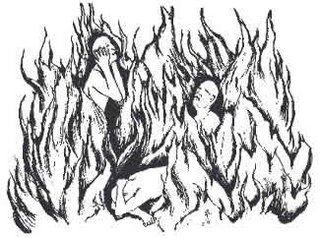PSALM SIXTY-NINE

In saying “pour out Thy indignation” (v. 24), the psalmist is indicating the wrath of severity without any mercy. For the wrath of goodness is not wrath poured out, but scarcely trickled, because the pouring out of grace, which, according to the apostle, has been poured on us abundantly (Titus 3:6), softens the wrath. “Thy name is oil poured out” (Song of Sol. 1:3). But if all that the saints suffer, namely, death and every evil of this life, is called a trickle of God’s wrath, what will the pouring out be? Oh, oh, oh! Who knows the power of Thy anger compared with Thy fear? Thus Micah 2:11 says: “There will be one who will drip on this people,” that is, one who promises temporal goods. In the prophets the word “drip” is often used to express “to prophesy the evils of this world.” For just as the good things of the world (which are a trickle compared with eternal goods) were promised to the Jewish people, so also the evils of the world were threatened them. Therefore the prophets are said to “drip” on them. To the Christians, however, the promises are both eternal blessings and eternal evils. Therefore He does not drip now, but He pours out both, in Christ and His apostles, and He now thunders through waterfalls and through the heavens. [“And He opened the floodgates of heaven” (Gen. 7:11) and “Deep calls to deep” (Ps. 42:7).]29 As His name is poured out, so also His threat to forget. And as He emptied Himself of all goodness for us, so He empties Himself of all wrath upon us. The greatness of the evils always depends on the measure of the good. And the promises and threats mutually highlight and expose each other.
The same thing is expressed by the words “and Thy burning anger,” or “the wrath of Thy rage,” as it is put elsewhere, “the wrath of Thy indignation” (Ps. 85:3). It is pure wrath, without the admixture of mercy, not the wrath of goodness. It seizes people, that is, it totally envelops them, so that they cannot get out in any way whatever. For there is no redemption in hell. –Martin Luther

0 Comments:
Post a Comment
<< Home